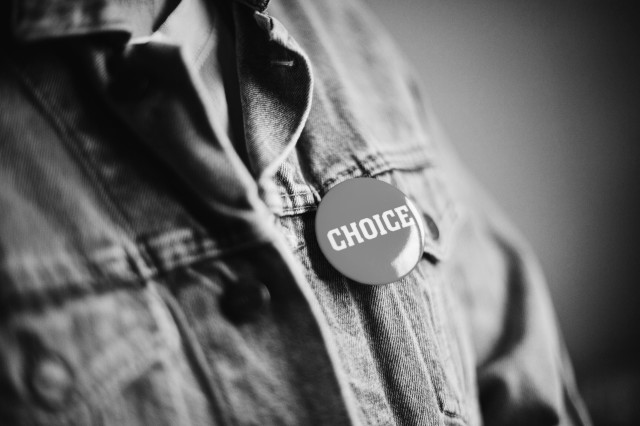
The Sacrifice of Speaking Out
If you’ve read any of my writing before, you’ve heard me talk about modern day feminism.
…the Uber engineer who was forced out after being sexual harassed by (and reporting) by her manager.
…the senator who was silenced when she tried to oppose a dangerous man.
…the Muslim man whose son died fighting for America, accused of being a terrorist after speaking out against Trump.
And now, the recent(ish) reveal that Mike Pence won’t dine with a female colleague unless his wife is present.
He doesn’t appear to find this odd. Despite the fact that we women know deals aren’t always made in the boardroom. Networking doesn’t happen “at the water cooler.” And promotions don’t appear magically when you put in your 40 hours.
So here’s Lesson #1. I hate to give it…
Speaking out requires sacrifice.
If you’re left on the political spectrum, you’ve been hammered over and over with messages about standing up for what’s right. That we should be living in a post-feminist, post-racist world and if you see something, you should say something.
Easier said than done.
Susan Fowler at Uber finally pushed hard enough to cause a stink. But to do that she had to spend over a year being “that annoying bitch” at work. She was passed over for promotions and pissed off her managers and colleagues.
In the wise words of every high school motivational poster, “Do what is right, not what is easy.”
Which brings me to Lesson #2:
If you have a choice, and you choose not to do something, you’re doing something wrong.
Writer and activist Glennon Doyle Melton says this better than I ever could:
I need to talk to white women for a moment here—I know some of us are feeling angry, afraid, invisible, ignored. Like our bodies are under threat; our kids’ education in at risk; we can be grabbed…that our objectification and discrimination has become normalized in chilling ways. This is painful.
But what we are beginning to feel, white women, is just a TOUCH of the pain that marginalized people in this country—black and brown and gay and trans and immigrant and Muslim and Jewish and Native American and differently-abled and poor folks in America—have felt forever.
And here’s what sucks: It took us being personally affected to start marching, to start calling Congress, to start speaking out. We should apologize for that. We should not say to the movement “Here we are!” without first saying: “We are so damn sorry it took us this long.
So what does this have to do with self-care?
I believe self-care extends beyond us.
When we take care of ourselves honestly and kindly, we take care of our world.
Honestly? Sometimes self-care is uncomfortable.
But we have a responsibility…. To ourselves, to our own personal truth, to our neighbors and community and partners and friends and children and the children of people we’ve never met.
Thanks for being in my corner.